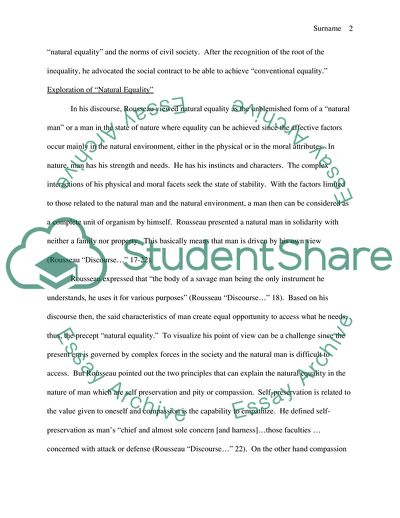Cite this document
(Rousseau's Ideas of Natural Equality and Conventional Equality Literature review Example | Topics and Well Written Essays - 1250 words, n.d.)
Rousseau's Ideas of Natural Equality and Conventional Equality Literature review Example | Topics and Well Written Essays - 1250 words. https://studentshare.org/philosophy/1729685-rousseaus-ideas-of-natural-equality-and-conventional-equality
Rousseau's Ideas of Natural Equality and Conventional Equality Literature review Example | Topics and Well Written Essays - 1250 words. https://studentshare.org/philosophy/1729685-rousseaus-ideas-of-natural-equality-and-conventional-equality
(Rousseau'S Ideas of Natural Equality and Conventional Equality Literature Review Example | Topics and Well Written Essays - 1250 Words)
Rousseau'S Ideas of Natural Equality and Conventional Equality Literature Review Example | Topics and Well Written Essays - 1250 Words. https://studentshare.org/philosophy/1729685-rousseaus-ideas-of-natural-equality-and-conventional-equality.
Rousseau'S Ideas of Natural Equality and Conventional Equality Literature Review Example | Topics and Well Written Essays - 1250 Words. https://studentshare.org/philosophy/1729685-rousseaus-ideas-of-natural-equality-and-conventional-equality.
“Rousseau'S Ideas of Natural Equality and Conventional Equality Literature Review Example | Topics and Well Written Essays - 1250 Words”. https://studentshare.org/philosophy/1729685-rousseaus-ideas-of-natural-equality-and-conventional-equality.


